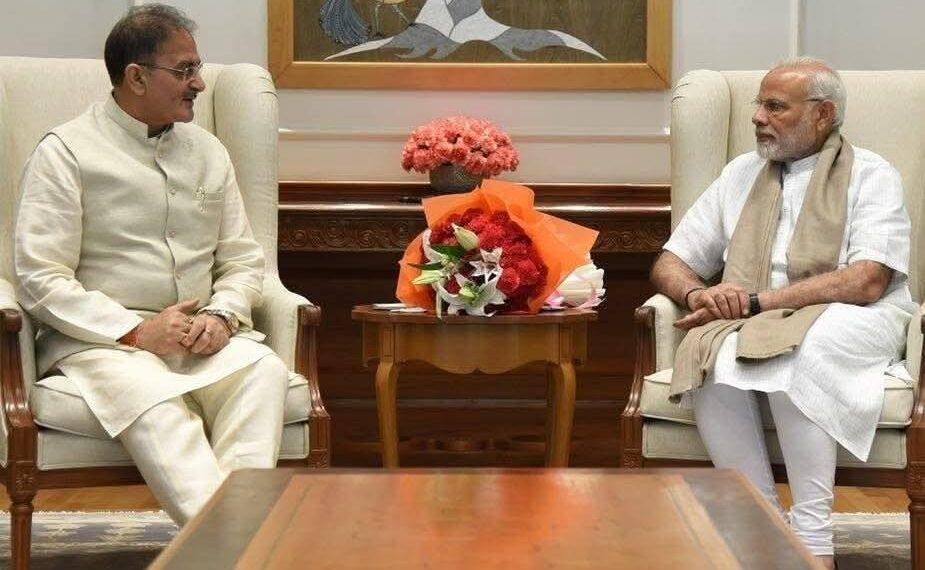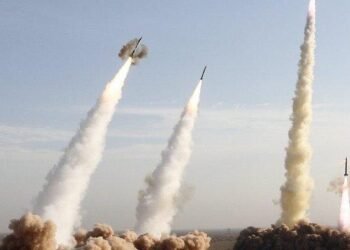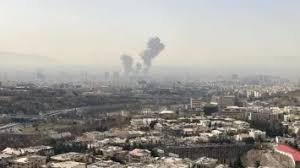The appointment of Kavinder Gupta is perceived as a strategic move by the Centre to balance engagement with firmness.
By Pravin Kumar
As Ladakh gears up for a pivotal round of discussions with the Union Home Ministry on July 20, 2025, the region has witnessed a significant change in its administrative leadership.
The appointment of Kavinder Gupta, a senior BJP leader and former Deputy Chief Minister of Jammu and Kashmir, as the new Lieutenant Governor (LG) of Ladakh, replacing Brigadier (Retd.) B.D. Mishra, has sparked widespread speculation about the Centre’s approach to addressing the region’s long-standing demands for statehood and inclusion under the Sixth Schedule of the Indian Constitution.
The Leh Apex Body (LAB) and Kargil Democratic Alliance (KDA), representing the Buddhist-majority Leh and Muslim-majority Kargil districts, respectively, have been at the forefront of a protracted agitation for constitutional safeguards and greater political autonomy.
The upcoming talks, proposed by the Ministry of Home Affairs (MHA), are seen as a critical opportunity to address these demands, which also include job reservations and separate parliamentary seats for Leh and Kargil.
Change of Guard Signals Strategic Shift
The appointment of Gupta, a staunch RSS loyalist and former Speaker of the Jammu and Kashmir Assembly, is perceived as a strategic move by the Centre to balance engagement with firmness.
Gupta, who served as Deputy Chief Minister during the BJP-PDP coalition government under Mehbooba Mufti, brings a political background to a region grappling with complex socio-political issues.
His appointment is seen as a signal that the Centre is ready to engage with local leadership but will maintain a strong stance against any attempts at political brinkmanship.
Before assuming the charge Kavinder Gupta rushed to New Delhi to attend a crucial round of meetings.
Also Read: https://powercorridors.in/why-did-yemen-postpone-the-execution-of-the-indian-nurse-on-death-row/
Local leaders have expressed cautious optimism about Gupta’s appointment. Ladakh MP Haji Haneefa noted, “The new LG has a political background, and Ladakh has political issues. We hope he will take everyone along.”
However, voices on X reflect skepticism, with some users arguing that Gupta, as an outsider from Jammu, may not fully grasp Ladakh’s unique cultural and geopolitical challenges.
Talks Advanced to July 20, Sonam Wangchuk Defers Hunger Strike
The MHA’s decision to advance the talks from July 28 to July 20 came in response to pressure from LAB and KDA, who had rejected the later date as “too late” to address their urgent demands.
Climate activist and recent LAB inductee Sonam Wangchuk, who had announced a 35-day hunger strike starting July 15 to press for statehood and Sixth Schedule status, postponed his fast in light of the MHA’s proposal.
Also Read: https://powercorridors.in/ind-vs-eng-how-india-keep-slipping-in-a-series-they-could-be-leading/
LAB co-Chairman Chering Dorjay Lakrook confirmed the development, stating, “We have received a proposal from the MHA for talks on July 20. In view of this offer, Sonam Wangchuk has postponed his 35-day fast.”
However, Lakrook emphasized that the talks must focus on the core issues of statehood and Sixth Schedule protections to be meaningful. “We are waiting for the formal invite and agenda. Only then can we ensure the discussions are productive,” he added.
Wangchuk’s inclusion in LAB and the MHA-constituted High-Powered Committee (HPC) has bolstered the movement’s visibility. His earlier hunger strikes in 2024, including a 21-day fast in March and a 16-day fast in October, brought national attention to Ladakh’s demands.
The LAB’s decision to nominate Wangchuk as its representative in the HPC underscores his growing influence in the region’s political landscape.
Leadership Vacuum and Internal Challenges
The upcoming talks come at a time of internal turbulence within LAB. The recent resignations of senior leaders Thupstan Chhewang and Nawang Rigzin Jora from LAB and the HPC, citing personal reasons and a desire to avoid partisan agendas, have raised concerns about a potential leadership vacuum.
Chhewang, a former MP and LAB chairman, was instrumental in uniting Leh and Kargil for a coordinated push for Ladakh’s interests post-2019, when the region was reorganized as a Union Territory following the abrogation of Article 370.
Jora, a Congress leader, clarified that his party would continue supporting LAB’s objectives, but his withdrawal from the HPC has added uncertainty to the negotiations. The resignations highlight the challenges of maintaining unity between Leh and Kargil, which have historically had divergent political priorities.
Despite these setbacks, LAB remains committed to its four-point agenda: statehood, Sixth Schedule status, job reservations, and separate parliamentary seats.












